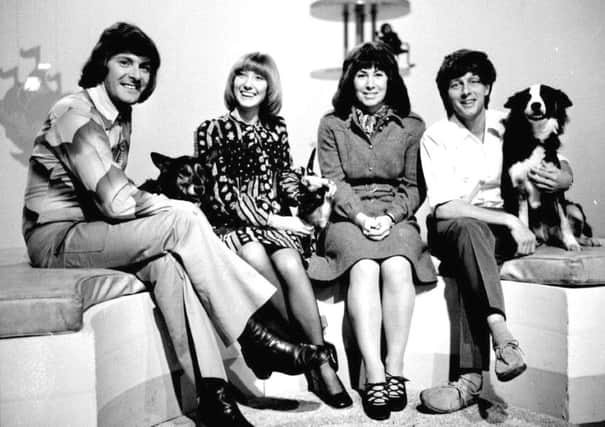David Behrens: Farewell to John Noakes, a breath of fresh Northern air for stale TV


For those of us who made up the first television generation, it is hard not to put on rose-tinted specs and to bathe the era in a hue our old Radio Rentals receivers never could. The reality lay somewhere in the shades of grey.
Before and during John Noakes’ tenure, the Monday and Thursday editions of Blue Peter were the highlights of my viewing week. They shone like a beacon in the sea of mediocrity that was kids’ TV, on whose shore washed up endless filmed series from eastern Europe dubbed into badly synchronised English, the Slavic features of the characters amusingly ill-matched to voices that came from no further east than the end of the District Line.
Advertisement
Hide AdAdvertisement
Hide AdThe origin of these “Tales from Europe”, as the BBC called them, was seldom stated, but they had clearly been made on a shoestring from out-of-copyright source material by the Brothers Grimm, and made all the grimmer by the leaden acting and direction.
Robinson Crusoe was worse still: an interminable Anglo-French serial which got around the language issue by having no dialogue; just an English narration. Its haunting theme music echoed across years of school holidays, yet no matter how long it the tooth it was, it always looked half finished.
On bank holidays, Billy Smart’s Circus would be televised, and in a time before political correctness, no-one gave a thought to the notion that making wild animals perform in tutus might be in some small way demeaning. At least we didn’t go as far over the big top as the Russians, as I discovered in 1976 when I saw the Moscow State Circus on its home turf. The opening act involved bear cubs in frocks holding on by their teeth to a revolving high trapeze.
John Noakes’s arrival on Blue Peter, as I remember it, was a breath of fresh, Northern air, for it was still unusual to hear a Yorkshire accent on the BBC. The distinctive tones of another Halifax native, Wilfred Pickles, had been familiar since the war, but he was an exception, as was Harry Corbett, the custard pie-spattered, West Riding face of the Sooty Show, produced out of Manchester.
Advertisement
Hide AdAdvertisement
Hide AdIt was another slapstick performer who was, for me, the biggest draw. Richard Hearne was a music hall comic who appeared in character as Mr Pastry and who, as the unsubtle name suggests, could get through more flour and water in half an hour than McDougall’s used in a week. His shows were screened only occasionally, which made them even more of a treat. In between, he appeared on screen in America, where Buster Keaton was said to be a fan.
Not much TV footage of Mr Pastry survives, but there is one complete programme in the archive of the National Science and Media Museum in Bradford, and a few years ago I arranged to take my son to see it. It would be a valuable lesson, I told him, in what entertainment was really supposed to be about.
As it turned out, I was the one who learned something: never try to go back. It was an untypical programme, filmed in a ski lodge without an audience, and even I had to accept that it wasn’t remotely funny. The plodding pace made it seem more like a public information film about not playing in air raid shelters.
It was on ITV that the relatively big money was being spent on children’s programmes. The Adventures of Robin Hood, in which pot plants doubled for Sherwood Forest, was shot on cinema quality 35mm film, as were Gerry Anderson’s puppet series – Supercar, Thunderbirds and the rest.
Advertisement
Hide AdAdvertisement
Hide AdIn the 1990s, I had the somewhat surreal experience of directing both John Noakes and Gerry Anderson on a couple of programmes at ITV. Gerry was a particularly charming man of the film industry’s old school, who took an interest in the camera crane I was using; John a gentle soul, professional to a T and seemingly flattered to have been invited on to our show.
I will remember him, though, in the same way as everyone else, as the friend I didn’t know, whose good humour and common, down-to-earth decency brightened up those Monday and Thursday teatimes of long ago. For which I can only say: Thanks, John.